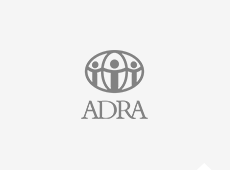Vacancy
Ciclone Idai Evaluation Consultant (m/f)
Adra Moçambique
Adra Mozambique is recruiting a Ciclone Idai Evaluation Consultant (m/f), to be based in Sofala, Mozambique.
Description
- Cyclone Idai was one of the worst tropical storms on record to affect Africa. It caused catastrophic damage across Malawi, Mozambique, and Zimbabwe, and left a humanitarian crisis impacting millions and over a thousand dead in its wake. ADRA, as a humanitarian NGO, was one of the first responders. The rapid response of the disaster demanded the three-country offices switch from the usual slow-onset disaster mode to act with expediency. A year on from the disaster, ADRA would like to now look back on ADRA’s internal response to draw lessons learned and best practices to improve future rapid onset responses in the Cyclone affected countries and others across Africa. ADRA is also interested to assess the level of engagement and coordination mechanism with the SDA church and how best to improve on it
Purpose of the Study
- The main purpose of the study is to use the exercise to enhance learning and contribute to new ways of thinking for ADRA for any future rapid onset disasters across the cyclone-affected countries in Africa
- It will assess the planning processes in all levels of ADRA’s first response and determine what went well, what did not, strengths/weaknesses, etc. It will also examine the factors in program design and implementation that led to the most effective response, as well as the coordination processes between the SDA church and ADRA
Scope of Work
- The evaluation will cover two of the three-cyclone affected Countries in Mozambique, and Zimbabwe. It will focus on ADRA’s internal operations, processes, and decisions in the immediate aftermath of the cyclone
- Assess the ADRA’s effectiveness, and accountability to future rapid onset disasters in Africa (program & finance)
- Assess Country response efficiency in coordinating with stakeholder, timeliness and feedback processes Assess the relevance of ADRA’s response programs with specific country humanitarian response planning
- Engaging ADRA staff and prioritizing their views and inputs on what areas they are keen to see ADRA address in rapid onset disasters through reflection of their direct experience
- Assess the coordination dynamics between the SDA church and ADRA in addressing rapid disasters (GC/Division/Union)
- Generate feedback and actionable learning to enhance future performance in rapid-onset disasters
Stakeholders to Interview
- Interviews will be conducted to the stakeholders including ADRA Zimbabwe, ADRA Mozambique, ADRA International, ADRA AFRO, Southern Africa Indian Ocean Division/Unions, Emergency Response Teams (ERTs) Members, Local government and coordination bodies
Methodology
- The evaluation design and methodology will be developed by the external consultant using international standards for humanitarian response and should include:
- A desktop study of background information, (International/Regional/National) strategies and other relevant project reports
- A sampling design, depending on qualitative or quantitative
- Data collection strategy, including the tool to respond to evaluation questions and sub-questions
- Interviews with relevant stakeholders (ADRA, NGOs/UN, SDA Leaders, Beneficiaries, ERTs)
- Protocols for data analysis & data management
- Resources, time frame, and reporting requirements
Duration of the Assignment
- This assignment is allocated for Zimbabwe eight days and Mozambique up to 15 working days. This consultancy is expected to commence by 20th November 2020. Travel costs related to this task will be covered through the ADRA country Office. The Emergency Management Coordinator or his/her designate will coordinate and share the schedule as required
Management Arrangements
- Reporting to the Country Director, Regional Emergency Director with support from ADRA International’s Emergency Management Unit
Deliverables
- Inception Report detailing evaluation design, methodology, indicators and work plan schedule
- Submit the raw data, the data-base which has been cleaned (both qualitative and quantitative, including original field notes for in-depth interviews and focus group discussions, as well as recorded audio material), and data collection tools used in the evaluation should be submitted together with the report. A simple inventory of material handed over will be part of the record. ADRA has sole ownership of all final data and any findings shall only be shared or reproduced
- A workshop (virtual) with stakeholders presenting the findings of the evaluation
- Evaluation Report that includes two pages of Executive Summary with main recommendations and findings, background information, literature, methodology, findings/discussions, and recommendation
Requisites
- ADRA seeks to recruit a qualified consultant for the work. Below is a list of qualifications and experience required
- An advanced university degree (masters or equivalent) in development studies, humanitarian leadership, Disaster risk reduction, climate change, or a related field
- Minimum of 4 years of experience from leading the design, execution, and/or management of multi-sectoral humanitarian/recovery programs in the context of rural development
- Experience in managing humanitarian programs
- Demonstrated experience working in complex situations
- Prior demonstrated experience from developing and writing successful proposals/reports for institutional donors
- Flexibility to adapt to any subsequent changes in the terms of reference
- Excellent English speaking/writing skills required; prior experience of facilitating multi-stakeholder workshops and dialogues
Notes
- Only shortlisted applicants will be contacted
- The consultant's interest to apply for this assignment is expected to respond to the scope of work presented in this TOR outlining in detail the methodology of successfully conducting this task. The proposal should also include the scope of work, methodology, budget, detailed schedule, and consultant’s CV
Details

- Entity Adra Moçambique
- Location Sofala
- Category Auditoria e Consultoria
- Tags
- Published 09.11.2020
- Expires 15.11.2020
-
Share Vacancy
- Report an error